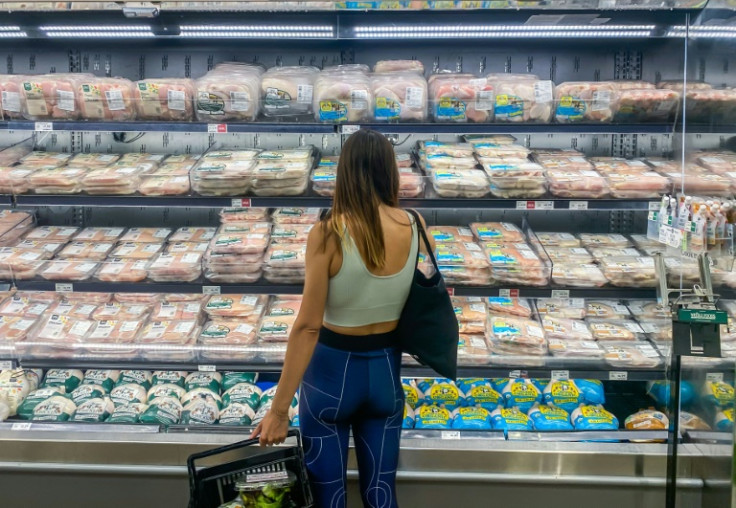US Inflation Persists, Higher In September Over Prior Month

US inflation jumped more than expected in September, according to government data released Thursday, in the latest sign that pricing pressures have become more intractable despite aggressive central bank action.
US prices rose 0.4 percent in September compared to August, twice the 0.2 percent projected by analysts, with price increases for food, shelter and medical care weighing on consumers, according to data from the Bureau of Labor Statistics.
The annual rate of inflation slowed slightly to 8.2 percent from 8.3 percent, according to the report.
The data comprise the final consumer inflation report before the US midterm elections in which Republicans have sought to blame President Joe Biden's Democratic party for the price increases.
The report boosts the odds that the Federal Reserve will extend its policy of super-sized interest rate hikes to counter inflation when it next meets in November -- actions that will raise the cost of mortgages and car loans.
In September, the Fed enacted its third straight increase of 0.75 percentage points as Fed Chair Jerome Powell acknowledged that there isn't a "painless" way to bring inflation down.
But the data Thursday showed the Fed's actions thus far have come nowhere near realizing the goal of two percent inflation over the long run. The central bank has aimed to stop inflation before it becomes engrained in the economy.
The reading for core inflation, which strips out volatile energy and food prices, rose 0.6 percent in September, more than the 0.4 percent projected by analysts.
Other items that saw price increases in September included motor vehicle insurance, householder furnishings and education. Items with decreases included used cars and apparel.
Beaten-down stock markets fell further early Thursday, with S&P 500 futures quickly tumbling deep into red just after the report was released.
Stocks had already fallen sharply after last Friday's US employment report, which showed only a modest slowing in the hot job market.
Art Hogan, the analyst of B. Riley Wealth Management, called the inflation report "significantly hotter than expected," adding, "it's certainly not a good report for equity markets."
The data also has political implications, coming four weeks ahead of midterm congressional elections in the United States.
Republican candidates have blamed Biden for broad-based price increases in trying to win back control of Congress from Biden's Democratic party, tying high gasoline prices to Democratic resistance to new oil and gas drilling and Biden's efforts to address climate change.
Treasury Secretary Janet Yellen and other Biden administration officials have defended their policies, attributing price increases to supply chain problems and other unforeseen events, such as the Russian invasion of Ukraine that has boosted prices for energy, wheat and other commodities.
© Copyright AFP 2025. All rights reserved.





















